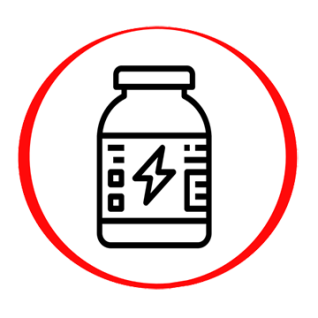Blood take service 5.00€

Vitamin A
90.00€
The validity period of online orders: 3 months from the purchase date.
Vitamin A, depending on its chemical structure, is called retinol, retinal, or retinoid.
Vitamin A is found in animal-based foods – fish oils, butter, egg yolk, cod liver, beef liver, milk, cream, sour cream, cheese.
Beta carotene is mostly found in carrots, pumpkins, tomatoes, cabbages, spinach, broccoli, and other green vegetables, apricots.
Since vitamin A is absorbed with fats, it is advisable to consume carrots or their juice with a little oil or fat.
Skin. Vitamin A is essential for cell growth and reproduction. It ensures the normal condition of epithelial tissues (skin and mucous membranes). In the absence of vitamin A, the skin and mucous membranes dry out, cracks appear on the skin, and resistance to infections is significantly reduced.
Vision. Absorbed vitamin A or carotenoids in tissues are converted into retinol, which is then converted into retinal or retinoic acid. Retinal is important for visual function, retinoic acid is required for intercellular retinoic acid receptors.
Vitamin A is used in the synthesis of rhodopsin for any light stimulus. This is especially important for people who spend a lot of time in front of televisions, computer screens, and whose eyes have to respond to contrasting light stimuli almost every second. The consequence is a high demand for vitamin A. Over millions of years, the eye has gained the significance of a vital sensory organ, developing a particularly dense network of blood vessels necessary to supply vitamin A. With each light stimulus, chemical breakdown of rhodopsin molecules occurs. At the same time, during biosynthesis, new rhodopsin molecules are formed from proteins and vitamin A. If vitamin is lacking, vision inevitably begins to deteriorate. In addition, in the absence of vitamin A, the cells of the eye's cornea begin to dry and harden, causing the protective tear film to be lost. As a result, the tear ducts become blocked, the conjunctiva (eyelid membrane) dries out, and there is a risk of developing conjunctivitis.
Both deficiency and overdose of vitamin A can be very harmful or even fatal. A deficiency leads to impaired night vision, pale and dry skin. Vitamin A deficiency can occur due to unhealthy, incomplete diet or impaired intestinal absorption (resorption) function.
Symptoms: digestive disorders, nausea, vomiting, visual disturbances, dizziness, uncoordinated movements. Severe overdose causes joint and bone pain, enlarged liver. The lethal dose varies for animals adapted to different environments – some animals (especially those adapted to polar conditions) can store vitamin doses in their liver that are lethal to humans.

Reference: 18916
90.00€







